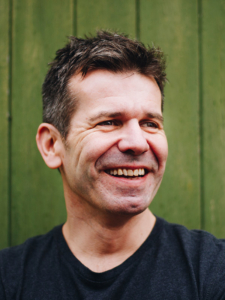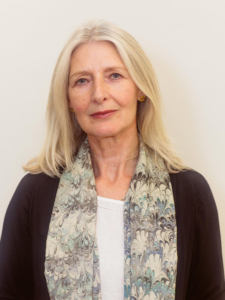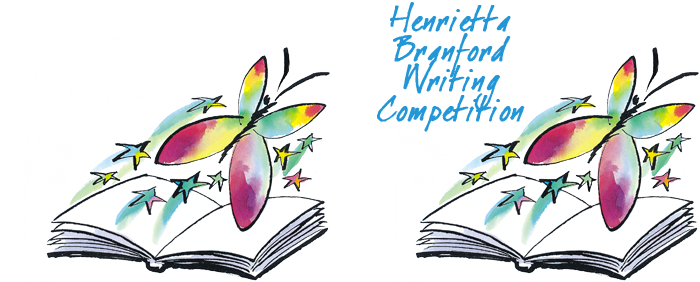Q&A with author Finbar Hawkins

The Branford Boase Award judges loved the language, the setting and the relationships in your novel. Where did the idea come from initially?
I’ve always been interested in local legend and folklore, as well as the power of stories to both entertain and to scare.
The Pendle Witch trials and the campaign of Matthew Hopkins, the self-styled Witch Finder General, have fascinated and appalled me in equal measure. So I knew I wanted to write about this, how stories directly affected people’s lives. I also wanted to explore the perspective of a fifteen-year-old girl of ‘witching way’. I was interested in how differently she would perceive both the natural and manmade worlds.
You did the MA course at Bath Spa. How much did that help with your writing, and in what way?
Central to the MA is regular workshopping, giving and receiving critical feedback from a group. This is invaluable – it provides a submission framework, making you focus on a delivery; and as a microcosm of a reading audience it enables you to experiment and take risks, to ultimately find your voice as a writer.
What did you most enjoy about working with your editor Fiona on the book?
It was Fiona’s openness and acuteness. From the deep breath of that first set of notes I knew I was working with someone who had thought so carefully and deeply about Witch. We had a really good dialogue, and this allowed me to see the book from a different perspective. It meant that we worked very closely, sharing ideas to make it as good as we possibly could.
What do you think is the single most important thing you learned from Fiona?
That I don’t need to explain everything! Fiona was very good at stripping out the baggage, letting the words breathe, giving the reader just enough steer. I thought I had things pretty trim but she showed me that I could take things up several notches. Fiona taught me to have the courage of my convictions – that the reader will follow, they don’t need hand-holding or stage direction.
Do you have a piece of advice for debut writers?
Critical feedback from other writers is essential. Seek out a local workshop, or identify a few other fellow scribes and share work. Along with this remember that writing is rewriting, so keep working on scenes until they sing. Try to write something, anything everyday, it keeps the subconscious ticking. And don’t give up, no matter how many times the black dog drags you back, just keep going.
Questions for Fiona Kennedy

What most excited you about Finbar’s manuscript when you first read it?
Voice – it’s so evocative, with a magical lilt. I’d only turned the first page to read ‘We ran fleet foot, the wind after catching us…’ and knew I was reading something remarkable. And as I kept on turning the pages, the story kept on being remarkable. I have a soft spot for anything to do with witches, and of course, Finbar’s script ticks all the boxes for its brilliant sense of time and place and its cleverly drawn, distinctive characters too. I don’t think there are many debut writers who can deliver to his standards.
What were the main things you worked on with him when editing the book?
Shape – letting Eveline of the Birds be true to her name and fulfil her role meant Finbar introduced a few changes to parts of the plot and elevated certain elements. Styling, on a less is more basis, so that every scene has the desired effect and every word counts.
What do you enjoy most about being an editor?
Everything really! It’s always a privilege to meet an author whose work I admire, and then to work closely with them, and see how they respond and where ideas take them. Equally I love working on the detail of the finished object from cover to interior design, from endpapers to embossed boards, spot, matt, book ribbons and stencilled edges – a finished book should be a jewel. Finbar not only wrote Witch but created the chapter opening artwork and was a complete pleasure to work with in every way.
What do you think is the best advice for debut writers?
I remain in awe of authors – to be able to sustain an entire novel is quite something. Writing a novel is not an exercise. It’s a passion and that passion needs to shine through. If it does, to me anyway, that is what will help a debut writer find a publishing home, where they can experiment and grow, where everyone from their editor to sales, marketing, publicity and rights values their work. Publishing a book is a team effort – and, naturally, includes the role of the agent who makes the submission in the first place and has already been working with the author.
You first won the Branford Boase Award in 2001. Do you think children’s books have changed in that time, and if so, how; or are publishers looking for different things now?
The fact that Marcus Sedgwick’s Floodland is still going strong after twenty years suggests not much has changed in what children enjoy reading, when you can give them a story that stands the test of time. Editors will always be looking for the very best storytellers – whatever their story might be. Different editors have different tastes, which allows for the vast range of publishing we see. Publishing changes constantly whether with the advent of celebrity publishing, or self-publishing, or new sensibilities to be aware of on a daily basis. To my mind, there are probably too many books published which are here today and gone tomorrow. But happily there will always be new talent to add to the nucleus of evergreen books.
Witch is published by Zephyr, 978-1838935610, £12.99 hbk.
Thank you to Finbar Hawkins and Fiona Kennedy for answering our questions.



